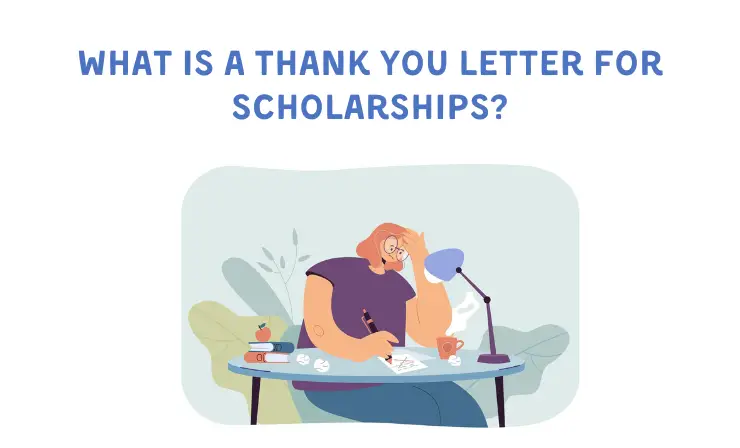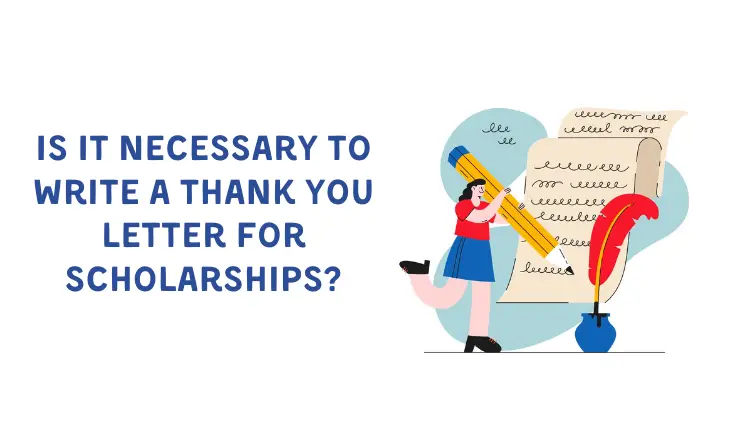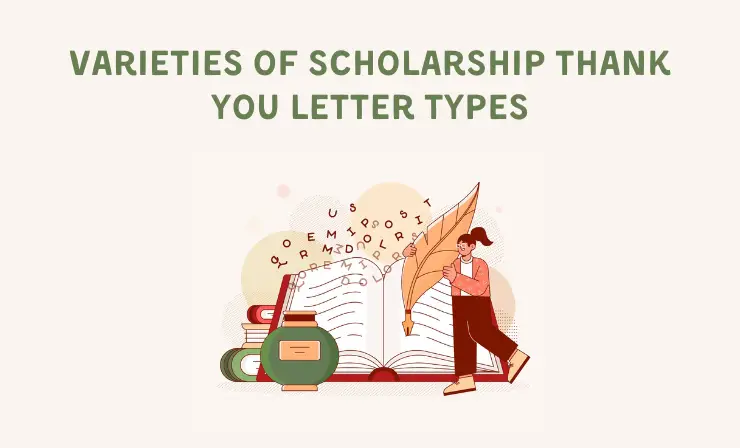
The scholarship application process can be a whirlwind of deadlines, recommendation requests, and countless essays. But amidst the chaos of seeking financial support for your education, it’s essential not to overlook a crucial step – expressing your appreciation through a well-crafted scholarship thank you letter.
If you’ve made it through the arduous journey of securing a scholarship, you’ve already demonstrated your dedication and determination. However, the act of penning a heartfelt thank you note is your opportunity to go the extra mile and show your gratitude for the generous gift that awaits you.
But what exactly goes into a scholarship thank you note? How do you ensure your message conveys your deep appreciation and respect for the donor’s support? In this comprehensive guide, we will unravel the secrets of how to write a thank you letter for a scholarship. We will walk you through the process step by step, dissect the essential components of an impactful appreciation note, and provide valuable tips to ensure your thank you letters make a lasting impression.
Whether you’re a seasoned scholarship recipient or embarking on this journey for the first time, our guide will equip you with the knowledge and skills to craft the perfect thank you letter. Let’s dive in and discover the art of gratitude in scholarship letters!
💡 Pro Tip: Send a thank-you email or letter to the scholarship committee, expressing your appreciation for considering your application. 🙏
— KU LEAD UP (@KULEADUP) May 15, 2023

A thank you letter for scholarships is a formal expression of gratitude to the individuals, organizations, or institutions that have awarded you financial aid for your education. It serves as a means to acknowledge their generosity and convey your appreciation for the financial support that allows you to pursue your academic goals. Donors are typically generous people who give what they can to support the education and futures of students just like you. These donors give out of the kindness of their hearts, often with no expectation of receiving anything in return. That said, writing a thank you letter is not absolutely necessary.
However, writing a well-thought-out letter is generally considered good etiquette. Some scholarship donors may hope for a thank you note, as these letters typically inform them of the positive impact their donations have made. A thank you letter does exactly what you may think — it shows gratitude for the gift you’ve received. This reason alone is enough to make receiving a thank you note special for the donors.
A thoughtful thank you letter outlining how impactful the scholarship is to your future educational and career plans can also help remind donors exactly why they give to such funds, to begin with. Often, your thank you note can help renew a donor’s intent to donate for future students’ education. So while writing a thank you letter for your scholarship isn’t always needed, it’s almost always recommended to send one anyway. It’s important to note that there are some colleges and universities that do require you to send thank you letters to the people and organizations from whom you received your scholarship. Always ensure you check whether you are required to do so, as these requirements often also come with deadlines.
Indeed, it is not only a courteous gesture but also a widely accepted practice to draft a thank you letter for scholarships. Scholarship providers invest in the educational pursuits of deserving students, and penning a thank you note is a means to showcase integrity and professionalism. Furthermore, many scholarship grants come with the possibility of renewal, making a well-composed thank you letter a strategic move to potentially secure continued support.

The significance of expressing gratitude extends beyond mere courtesy. Whether you’ve been awarded $50 or $50,000, crafting a scholarship thank-you letter is an absolute necessity. Scholarship donors generously contribute financial resources to assist students and often expect nothing in return. Writing a well-thought-out letter or email is the minimum effort required to convey your appreciation and reassure them that their contribution will be put to good use.
When it comes to the method of communication, the choice between a handwritten letter and an email largely depends on the scholarship provider’s preferences. If the provider’s application process involves physical submissions, it is advisable to reciprocate with a handwritten or typed thank-you letter sent by postal mail. Conversely, for scholarship programs that exclusively accept online submissions, an email is typically sufficient. You have the flexibility to either compose the letter within the body of the email or attach it as a separate document.

Crafting a sincere and well-structured thank you letter for a scholarship is a crucial task to convey your appreciation and professionalism. While some scholarship providers offer guidelines for composing these notes, many students find themselves without a clear roadmap.
Here, we’ve put together a step-by-step guide to help you navigate the process.
Your salutation may be formatted as follows:
“Dear [Donor or Organization’s Name],”
Or, if your scholarship is affiliated with your university:
“Dear [Donor or Organization’s Name],
[Your Scholarship’s Name]
Your University Office of Financial Aid
Your University
[Your university’s full address]”
In the opening paragraph, express your gratitude sincerely and state the purpose of your letter. Avoid mentioning specific monetary amounts or requesting additional financial support. You can share your initial reaction when you learned about your scholarship.
Use the second paragraph to provide donors with more insights about yourself. Mention your field of study, the institution where you are pursuing your degree (if the scholarship isn’t school-specific), your expected graduation date, and your post-graduation plans. Explain how the scholarship will impact your education positively. If necessary, you can add another paragraph, but remember to keep your content concise and to the point.
Conclude your letter by expressing gratitude once again and summarizing the scholarship’s impact. If you wish, mention your commitment to giving back or paying it forward in the future.
Choose a complimentary close, such as “sincerely” or “respectfully,” before adding your signature. Below your signature, write your name. Optionally, include your contact details, such as your address, email, and phone number. Some donors or organizations may want to maintain contact with you, which can be beneficial for scholarship renewal or future career opportunities.
Following these steps will help you compose a compelling and appreciative thank you letter for your scholarship, ensuring that your gratitude and professionalism shine through.
Let’s proceed to the informative video, which delivers valuable insights into crafting a compelling thank-you letter. The video presents six practical tips designed to enhance appreciation letter-writing skills.

Scholarship thank you letters come in various types, each tailored to specific situations and recipients. They serve as a vital means of expressing gratitude for the financial support provided through scholarships.
Below, we’ll explore five common types of scholarship thank you letters, along with their key features and when they are typically used.
These guidelines should help you determine which type of scholarship thank you letter is most appropriate for your specific situation and how to effectively express your gratitude to the donor or organization.
To make the process easier, here are some templates you can use as a starting point for your own thank you letter. These templates cover various scholarship scenarios, from academic achievements to community involvement.
To provide you with real-life examples, here are some samples of thank you letters written by scholarship recipients. Analyze these samples to understand what makes a thank you letter effective and heartfelt.
All templates and samples have been sourced from the website. For additional resources, simply click the provided link.
Within this video, you will discover a sample of a thank you letter.
Writing a thank you letter for a scholarship is not only a formality but a meaningful way to express your appreciation for the support you’ve received. By following the steps and tips outlined in this guide, you can create a compelling and personalized thank you letter that leaves a positive impression. Remember that your gratitude matters, and it can lead to continued support and opportunities in your academic journey.
Simona Johnes is the visionary being the creation of our project. Johnes spent much of her career in the classroom working with students. And, after many years in the classroom, Johnes became a principal.
Follow Simona: 
